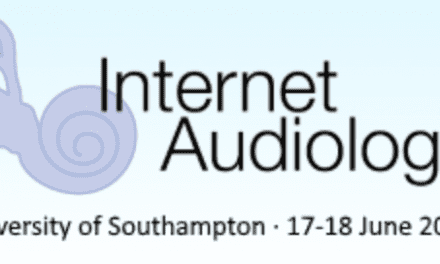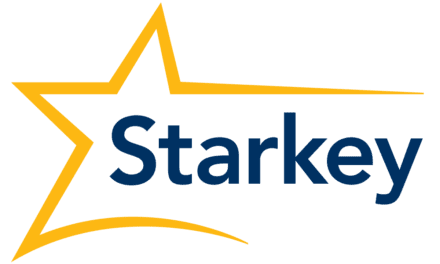Founded in 1988, Zhuhai Zhi Li Battery Co, Ltd, or ZeniPower in English, has been providing zinc air hearing aid button cell batteries to customers around the world. The Zhuhai, China-based company employs 95 at the moment.
Hearing Products Report spoke to the company’s general manager, Frank Wang, recently about ZeniPower’s history, marketing efforts, customer service, and dedication to automation.
HPR There are numerous battery companies on the market worldwide. How does ZeniPower stand out from those companies?
Frank Wang We emphasize that our batteries have the world’s best value. We add value to our clients as well as to their customers. From the point of view of battery performance, we are in the top three of this industry, and, as we have very competitive pricing, our batteries are simply the best choice for our clients.
HPR Since ZeniPower has entered the worldwide market, how have you marketed your brand?
Wang We participate in industry conventions and exhibitions, advertise in industry magazines, do business face-to-face, run mailing campaigns, attend governmental meetings, and donate to deaf children’s foundations.
HPR How did the name ZeniPower originate?
Wang We combined the words “zenith” and “power,” which reflected our desire to make the best battery in the world. ZeniPower is also similar in pronunciation to our Chinese name, Zhi Li, which means “Try your best, try the best you can.”
HPR How and why did you get involved with Zenipower? From a personal perspective, what makesit a great company to work for?
Wang I was working for another battery manufacturer before I joined ZeniPower. That company was joint-ventured in 1995, and we, as middle managers, were not satisfied with the new management, so most of us left in 1996. ZeniPower provided me with partnership opportunities, and also I saw the potential to promote this company at a worldwide level. I had more responsibilities and was more motivated at ZeniPower with my enthusiastic young team. It was mainly the new challenges the company presented that attracted me.
HPR How has ZeniPower made a positive impact on Zhuhai?
Wang To be honest, ZeniPower is just one of the hundreds of high-tech companies in Zhuhai, and we contribute as a corporate citizen. This city is one of the coastal industry centers in China making things from MP3 chips to air conditioners. In addition, there are dozens of battery manufacturers, making everything from hearing aid batteries to cell phone packs!
HPR What is the history of the company? Who founded it and why?
Wang In 1988, ZeniPower Batteries was founded by Ms Xia Lixuan, who had been working as a battery engineer since 1966. At the beginning, the company was a joint venture with FUJI Battery, Hong Kong Ltd, a branch of the Japanese battery manufacturer. At that time, the company focused on zinc air hearing aid batteries because Ms Xia’s background was in zinc air technology and, at that time, the hearing aid industry had just emerged in China. She worked closely with hearing aid manufacturers. The company became privately owned in 1995, and began using its current name.
HPR What need did the company fill in the marketplace?
Wang Of course, we filled the insatiable need for affordable hearing aid batteries in China, when we started. Big brand batteries were—and still are—too expensive for many people all over the world. After 18 years of hard work, we are not only good at pricing, but we also provide a top performing product as confirmed by independent laboratory tests.
HPR What is the biggest challenge you have faced by entering the worldwide battery market? How do you keep your competitive edge and stay focused on ZeniPower’s mission?
Wang [It] is trying to convince our customers that batteries “made in China” can be as good as, or even better than, those from competitors in other countries. China not only makes toys and shoes, we also make many high-tech products. We continue the production and technological improvements that enable us to keep competitive. It also has given us more automation at a higher consistency and lower cost. We transfer the savings to our customers.
HPR How large is your production facility? Do you plan to move beyond producing batteries in the future?
Wang We have four automatic production lines and have the capacity of making 96 million batteries annually. We designed the facility and we can easily have more lines. We are still far from our maximum capacity, and we will continue focusing on producing hearing aid batteries in the near future.
HPR How important is automation to your company?
Wang [It is] very, very important. It contributes not only to the production quality control and high consistency, but also helps to reduce production costs—because of less defective batteries and lower labor costs. Actually, we only began to expand on the world market after we were automated in 2002.
HPR How do you ensure the consistent quality of your batteries?
Wang Our quality control system is certified in accordance with ISO9001:2000 standards. We ensure the consistency of quality starting from the very beginning, by purchasing the best materials from the best suppliers in the United States, Japan, and/or Europe. During the manufacturing process, we have hundreds of online checkpoints to ensure every detail is correct, recorded and traceable. Our automatic assembly lines also contribute greatly to this high consistency. Finally, before the batteries leave the factory, we have tested each and every single cell three times to make sure its actual discharging voltage will meet the needs of the newest full digital hearing aids.
HPR How do you develop new technologies? Do you have your own R&D team or have you built on existing technologies?
Wang We have our own highly efficient research and development team that consists of highly experienced engineers, as well as brilliant and energized young guys. We focus on the customer’s needs, study the industry trends, and set goals every year for ongoing innovations. Our technology was originated as early as 1966 and has the extra advantage of higher voltage, lower impedance, and higher drain discharge capability. These characteristics make our batteries suitable for the latest models of high gain digital hearing instruments. Actually, with our high drain cochlear implant batteries, ZeniPower is one of the only three manufacturers who can deliver these results. We have a patent on this technology in China and the United States.
HPR Have you built any strategic partnerships with hearing device manufacturers? If so, how have they influenced the way you do business?
Wang We have not signed any strategic agreements like that yet. But we work very closely with the research and development departments of several industry-leading hearing aid manufacturers, and they did help us a lot to understand the customer’s needs and hearing aid standards. Knowing this, we then adjusted our research and development goals to meet these needs. We have been supplying all the industry-leading hearing aid manufacturers at their Chinese operations since 1992.
HPR How has your packaging changed throughout the years? Do you find that packaging needs to meet a different standard in your various markets?
Wang The packaging has to meet the needs of the individual market. We changed the packaging from a 2- x 5-inch blister card to six-piece dial packs over the years. As in most of the Western countries, end users are used to dial packs, so we also changed to this. We also provide private label packaging, especially in the North American market, to promote our client’s own practice. This kind of service is not popular in developing markets.
HPR What is the most important form of marketing that you use? How has the Internet assisted you in selling batteries?
Wang Exhibition and magazine advertising is the most important marketing tool for us at the moment. [However, the Internet] does help a lot. Our Web site, as well as our distributors’ Web sites, attract many hits and are also very helpful in getting our message out.
HPR Do you only manufacture your batteries in your home city? What is your distribution market like?
Wang Yes, we only manufacture in Zhuhai, our home city. We distribute batteries in more than 40 countries through our distributors. Thanks to modern logistic companies, they make the distribution much easier. For example, we can deliver 6,000 batteries in just 4 days to our US customers, and they have told me we are even faster than their local battery suppliers!
HPR How do you handle order fulfillment?
Wang When we receive an order, one of our staff will check the customer’s profile and examine every detail of the order requirements. These requirements will be listed on a note and transferred to production and purchasing, to confirm that everything is just fine. Then we will confirm the order with our customers and start manufacturing or packaging for the specific order, and ship to the customer on the promised delivery date.
HPR How do you support your batteries? If a hearing aid user or an audiologist has a question or a problem with your batteries, how do you help them solve it?
Wang We care about our customers. We provide a 3-year warranty, and we guarantee to replace or refund any batteries that have problems, and will repair any hearing aid device that proves to be damaged by battery defects. Our staff will reply to questions or complaints in less than 24 hours by e-mail.
HPR How would you describe your corporate mission? How does this culture give you an advantage in the marketplace?
Wang Quality. Honesty. Affordability. The pursuit of excellence is in all we do. Every member of our team remains unified in achieving these goals. We never stop striving for better quality and lower cost, and we care about our customers. We have insisted on this for the last 18 years and it has brought us not only customers, but long-time friends; not only sales growth, but also value to hearing aid users and audiologists, as well as to our employees and owners.
HPR Do you have any new products that will be launched soon that you would like to talk about?
Wang Of course… We will launch our new generation of hearing aid batteries, in late 2006. Our A10 will have 100 mAh, which is 15% higher than our current line. We are pushing the technology to the limit. We are also planning to launch our rechargeable hearing aid batteries for BTE, at the same size of zinc air, 675 and 13, in 2007.
HPR In your opinion, how will battery technology change in the future?
Wang Lithium technology is dominating the rechargeable market and still has potential to develop further. The fuel cell will be the future but not as soon as most people expect. In the hearing aid battery market, I believe zinc air technology will control the market for another decade. For BTE hearing aids, rechargeable batteries may have some market share, but for ITC and CIC using A312 or A10 battery, I do not see replacement technology yet.
C.A. Wolski is a contributing writer for Hearing Products Report.



